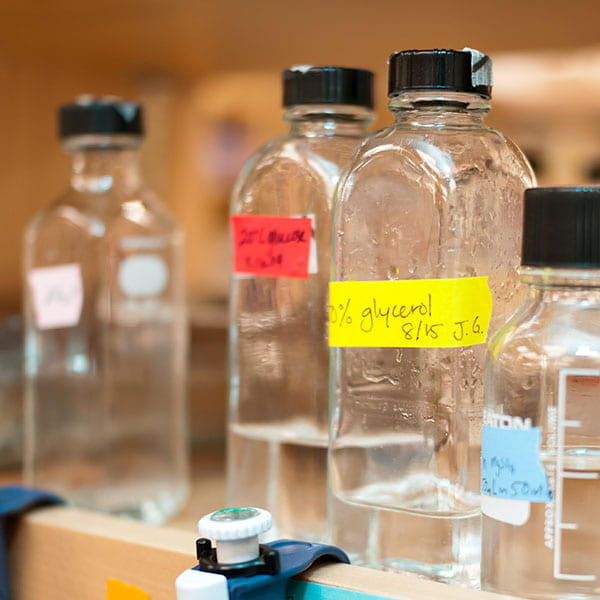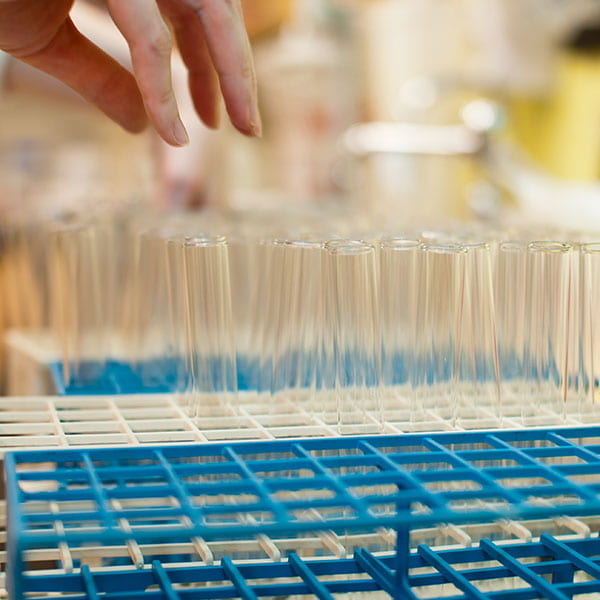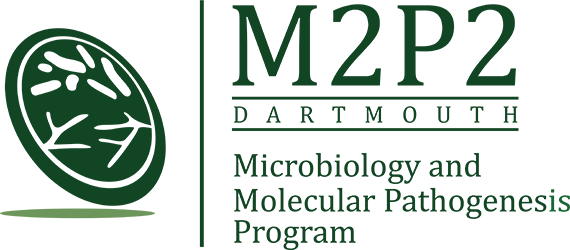The M2P2 program affords a unique, collaborative environment comprised of principal investigators, students, postdoctoral fellows and research and administrative staff.
We provide an outstanding training experience for graduate students and post-docs by providing opportunities for presentation, formal & informal interactions with colleagues, and collaborative projects.
One goal of the M2P2 program is to translate our bench studies to improved patient care. To that end, members of our program have many opportunities to collaborate with clinicians, start-ups and industry. Our alums move into many important roles in academia, industry, education and the public sector. We provide opportunities for graduate students to learn more about these types of careers during their training at Dartmouth.

Journal Club
Graduate students enroll in a journal club each semester (except for the term that they defend their thesis), and many M2P2 graduate students take the M2P2 journal club. Each term, the M2P2 journal club has a different theme.
Recent topics have included, fungal pathogenesis, plant-pathogen interactions, gastrointestinal microbiome, modeling in biology, a structural approach to pathogenesis, the study of pathogenesis through host genetics, and diseases of the lung.
Senior Ph.D. students co-organize the journal club with a faculty mentor and select the topic to be covered in that session to gain leadership experience. Presentations include a short introductory lecture, followed by paper discussion, and students lead journal club once per year.

Joint Lab Meetings
M2P2 trainees present a seminar once each year. This 45-50 minute presentation over lunch allows students to further develop their presentation skills and to share their recent findings with colleagues in the program. The Joint Lab Meeting is attended by members from ~ten different labs and the discussion is often lively and helpful. Students either present at the retreat or in the biweekly joint lab meeting.

Annual Retreat
The M2P2 annual retreat, held in February at Lake Morey Resort, brings together more than 100 students, faculty, and post-docs from Dartmouth and institutions across New England, including the University of Vermont, the University of New Hampshire, UMass Medical Center, the University of Maine, Middlebury, and Smith College.
This two-day conference covers a wide range of topics related to all bacteria, viruses, fungi and parasites, and the interactions of these microbes with their hosts. The retreat includes oral presentations and a poster session, given primarily by graduate students and post-docs. We also organize career development activities along with an afternoon break to enjoy skating or skiing, board games, the pool, or chatting by the fireplace.

Specialty Courses
M2P2 faculty are launching a curriculum comprised of three classes for M2P2 students including: Microbial Metabolism Across Environments, Host-Pathogen Interactions, and a capstone course in focused on invited lectures from individuals at the cutting edge of microbiology, immunology and host-pathogen interactions.
Many M2P2 students choose to take short summer courses at institutions like the Marine Biological Labs, Mount Desert Island Biological Laboratories, and Cold Spring Harbor. Students can apply for the Ron Taylor Memorial Scholarships towards the costs of summer courses. Internship programs can also be taken for credit (with advisor approval) to expose M2P2 students to careers in biotech, clinical microbiology, government labs or other scientific careers.

Other Activities
Other M2P2 activities include NIH fellowship preparation program, support for professional grant editing services, short courses focused on specific topics (such as a specific disease), BBQs in the fall and spring, ethics and rigor and reproducibility training, special seminars by visiting alumni who work in different areas, and more.

